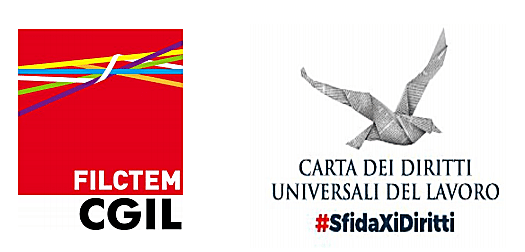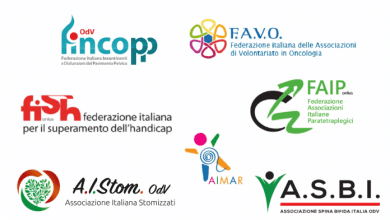
Prot.: 171017p 1996
Gentlemen Lawyer Emanuela Messina
Rome, 17 October 2017
Subject: ANSWER TO CONTRACTUAL INTERPRETATION QUESTIONS
Dear Doctor,
We report below the three questions you asked regarding the interpretation of the undersigned Trade Union Organization, as a signatory of the current CCNL for Pharmaceutical Chemistry, on some aspects concerning the scientific information activity of the drug.
Questions:
"Let the union say, with reference to the Chemical-Pharmaceutical CCNL referred to in the employment contract in relation to the individual position of the scientific representative of the drug:
a) If on the basis of the legislation in force and the National Collective Labor Agreement, the scientific representative of the drug is required to answer to the employer for the so-called sales data relating to your area of competence provided by a third-party company;
b) If, in the event that the so-called sales data are deemed by the company to be incongruous, i.e. not responding to company expectations, this could constitute a valid reason for the imposition of a disciplinary sanction or dismissal of the scientific representative of the drug;
c) Whether it is legitimate on the part of the company, in case of incongruity of the so-called sales data on the basis of company directives, have their scientific representatives carry out scientific tests, and, if positive, whether it is legitimate that there is no form of control over the correction of the documents by the workers, nor that the results are made available to drug sales reps employed by the company”.
Given that:
The National Collective Agreement for Pharmaceutical Chemistry regulates the figure of scientific information on drugs, considering it as envisaged by current legislation, an absolutely distinct activity from the commercial one, aimed at the "scientific" knowledge of drugs among all health professionals, and not directly connected to the commercial one.
This aspect is very clear, and can be seen by looking at the specific declarations of the various professional figures, of the commercial and marketing and sales functional area, which also includes the figure of scientific drug information, since the work organization indicated the CCNL does not provide for a Scientific Functional Area, as instead indicated in the relevant legislation.
The choice of placement of the ISF, within the commercial and marketing function, is linked only to a technical fact which sees some responsibilities of figures hierarchically superior to the scientific representative, in terms of relations with the external complex system, of both commercial and scientific; unfortunately all this has often created ambiguities in the attitudes of some companies, which increasingly tend to mix scientific information activities with commercial ones; if this is in some way made possible in the contract for hierarchically top organizational positions, it is absolutely not possible for the professional figure of the scientific informant.
By analyzing the CCNL in detail, in APPENDIX 1 / ART. 4 CCNL PERSONNEL CLASSIFICATION / CATEGORY A: PROFESSIONAL FIGURES BY FUNCTIONAL AREA AND ORGANIZATIONAL POSITION 1, which deals with the activities of the top management figures of the company, we see that the professional figures in points 3, 4, 6, 8, are directly connected to the sale of the products; now comparing the two professional figures of Area Managers in points 7 and 8, it emerges with absolute clarity that, while the professional figure 8 (Sales Area Manager), acts territorially in a defined geographical area and has purely commercial skills, figure 7 (Head of pharmaceutical areas) is instead responsible for several geographical areas, and has two distinct responsibilities; in fact, even if it collaborates to define sales and economic strategies, it must guarantee the development of correct scientific information (... in compliance with the legal regulations in force on the subject and with the ethical standards .......). In this case, the will/need of the contracting parties to keep the two activities clearly divided.
Continuing, in the same APPENDIX 1, up to ORGANIZATIONAL POSITION A3, in organizational position 34 we find the figure of Area Manager (Pharmaceutical) clearly dedicated to the supervision and coordination of the Isfs, always and only (... in compliance with the legal regulations in force on the subject and of the deontological norms…….).
Continuing always in APPENDIX 1/ART. 4/ CATEGORY B/ ORGANIZATIONAL POSITION 1/ we find, marked with the number 64, we find the precise definition of the specific activity of the drug sales representative. Here too the observations for level A are repeated, even more decisively, i.e. while all the professional figures 61, 62, partially 63, 65 and 66, have commercial tasks and responsibilities, while the informant is completely and solely dedicated to the role of scientific information of the drug. And the parties stipulating the CCNL could have done nothing else but defer their duties to hierarchically superior sources such as Legislative Decree 219/06 which in turn implements specific European regulations. In fact figure 64 of the CCNL:
(…….According to company directives and in compliance with Legislative Decree 12/30/1992 No. 541 as amended by Legislative Decree No. 219 of 24/04/2006, it carries out scientific information activities with doctors and healthcare professionals by explaining to them the pharmacological and therapeutic characteristics of the drugs in order to ensure their correct use.)
(……..refers to the company in compliance with article 9, point 6, of Legislative Decree 12/30/1992 n. 541 as amended by article 122, point 6, of Legislative Decree 24 /04/2006 n. 219, the observations recorded in the use of drugs that emerge from the interview with health professionals and in particular the information on the secondary effects of drugs for human use.)
The need and willingness to strictly comply with the legislation in force on the matter was a choice of the stipulating parties, through the references included in the CCNL.
The aforementioned Legislative Decree 12/30/1992 n. 541, has been superseded and replaced by Legislative Decree 24/04/2006 n. 219. The Legislative Decree 219/06 regulates the work of the ISF in a truly detailed and meticulous way, much more than a "job description"; From article 119 to art. 128 regulates the work of the ISF in all its operational aspects in the presence of healthcare professionals (doctor, pharmacist and hospital pharmacist). And the chemical-pharmaceutical collective bargaining agreement provides for each task in an equally detailed and meticulous way.
In detail to the aforementioned, art.122, point 6, .......... Scientific representatives must report to the scientific service referred to in article 126, on which they depend, and to the head of the pharmacovigilance service referred to in paragraph 4 of the article 130, all information on the undesirable effects of medicinal products, attaching, where possible, copies of the reporting forms used by the doctor pursuant to title IX.
While the contents of the aforementioned Legislative Decree 12/30/1992 n. 541, art. 9, point 6, concerning the pharmacovigilance topics listed below, have been inserted in TITLE IX of 219/06, which state:
Scientific reps must report to the scientific service pursuant to art. 14, on which all the information on the side effects of the drugs depends, attaching, where possible, a copy of the reporting forms used by the doctor pursuant to art. 1 of the decree of the President of the Republic 25 January 1991, n. 93. Article 1.
“1. The reporting forms of toxic and secondary effects, consequent or in any case correlated to the use of drugs, which all attending physicians are required to use for communications to the local health unit responsible for the territory envisaged by art. 9 of the decree-law of 30 October 1987, n. 443, converted, with amendments, by law 29 December 1987, n. 531, must comply with the model which will be approved by decree of the Minister of Health within thirty days of the publication of this regulation.
2. Firms that hold authorization to market medicinal products, including those produced abroad, and manufacturers of pre-packaged galenic drugs are required to provide the attending physicians with a suitable number of forms conforming to the model referred to in paragraph 1.
3. Samples of these forms will also be published by the Ministry of Health in the Information Bulletin on Medicines."
Answers:
Now, on the basis of the premises, it can be stated that, answering question (a), according to the Filctem CGIL signatory of the CCNL in question, there is no possibility of a direct link between the work of scientific information and the economic results of the product presented to healthcare professionals, indeed the will to clearly divide the sales activity and the economic results is clear, from the activity of scientific information, which has a purely and exclusively scientific nature, as defined in the contractual declarations and by the laws in force, indicated above.
Similarly, answering question (b), according to the Filctem CGIL it is not possible, given the declared contractual will analyzed above, to commensurate the professional performance of the informant, to the value of the economic and sales data of the products presented in one's geographical area pertaining to work; for this reason it is not possible to derive any sanction against the worker from the analyzes described above.
On the other hand, as regards the issue of training, posed to question (c), the company has the absolute right to promote initiatives aimed at improving the professionalism of scientific reps, whatever the objective data from which the training need arises, provided that the topics of the course in question pertain to the worker's activity, or are of a general nature; for example, it is clear that any specific training courses in sales and/or motivational techniques risk, unfortunately a very widespread fact, creating confusion in the role of the professional figure, inserting characteristics of a purely commercial nature in a context of absolute dichotomy between different functions. It is also not possible to harm the dignity of the individual by making a common comparison, of a plenary nature, or to correct individual documents, as the protection of the right to privacy must always be guaranteed.
Now, based on the premises, answering question (a), as regards the CCNL, according to Filctem Cgil, as a signatory of the CCNL in question, there is no possibility of a direct link between the work of scientific information on the drug among health professionals authorized to prescribe or dispense it and the economic results of the product presented to health professionals; on the contrary, there is a clear desire to clearly divide the sales activity and the economic results from the scientific information activity, which has a purely and exclusively scientific nature, as defined in the contractual declarations indicated above, in absolute compliance with current legislation.
In the same way, answering question (b), according to Filctem CGIL it is not possible, given the declared contractual will analyzed above, in implementation of the clear regulations of the Law, to commensurate the professional performance of the informant, to the value of the economic data and sale of the products presented in the geographical area of work pertinence; for this reason it is not possible to derive any sanction against the worker from the analyzes described above.
On the other hand, as regards the issue of training, posed to question (c), the company can/must promote initiatives aimed at improving the professionalism of scientific reps, whatever the objective data from which the training need arises, provided that the topics of the course in question pertain to the worker's activity, or are of a general nature; for example, it is clear that any specific training courses in sales and/or motivational techniques risk, unfortunately a very widespread act, creating confusion in the role of the professional figure, inserting characteristics of a purely commercial nature in a context of absolute dichotomy between different functions.
It is also not possible to harm the dignity of the individual by making a common comparison, of a plenary nature, or to correct individual documents, as the protection of the right to privacy must always be guaranteed. Indeed, we recall in this regard that, based on article 63 of the CCNL, the will to guarantee and increase timely and adequate training is clearly shared by all parties signing the CCNL, as it is considered essential for the company and for the worker.
This is also achieved through the appointment, by the Rsu, of the Training Delegate, who actively participates in the creation of shared training plans.
Hoping to have been clear and exhaustive, we remain at your disposal for any clarifications and/or clarifications, best regards.
p.The FILCTEM National CGIL Pharmaceutical Chemical Department
Sergio Cardinals
WITH WORKERS, ON THE SIDE OF CITIZENS
The discussion table on pharmaceuticals open to the Ministry of Economic Development, the normal relations with the entrepreneurial associations of the sector, the regional institutional meetings, represent useful and opportune moments to carry out this verification on the state of the art, and at the same time, useful to correct the current drift.
Filctem-Cgil is in the field to bring out the problems and develop solutions necessary to relaunch the





